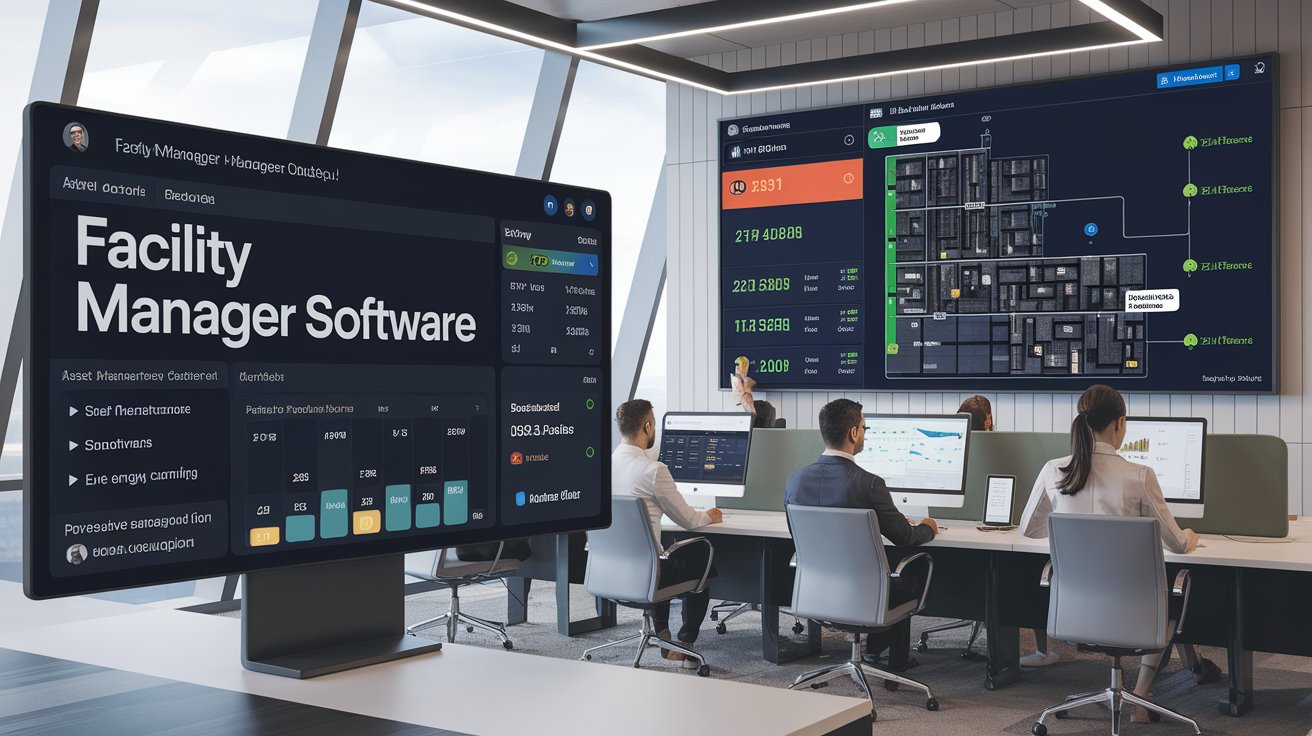Facility management is a critical component of every firm, focused on the maintenance, operation, and safety of physical assets. Facility managers are responsible for a wide range of tasks, from maintaining HVAC systems to ensuring regulatory compliance, which require efficiency and precision. With the introduction of digital tools, facility manager software has transformed these processes. This program provides a consolidated platform for streamlining tasks, minimizing downtime, and improving overall building management.

What is Facility Manager Software?
Facility manager software is a comprehensive digital solution designed to help facility managers plan, monitor, and maintain their facility’s infrastructure and resources. This software is built to support various aspects of facility operations, including:
- Preventive maintenance: Schedule and track regular maintenance tasks to avoid unexpected breakdowns.
- Asset management: Monitor and manage assets and equipment to ensure they are well-maintained and functioning properly.
- Work order management: Create, assign, and track work orders for repairs, maintenance, or other tasks.
- Space management: Optimize the use of space in a facility, reducing operational costs and improving space efficiency.
- Energy management: Track energy usage and implement measures to reduce consumption, ultimately saving costs and promoting sustainability.
- Compliance and reporting: Ensure that facilities comply with relevant regulations and standards, and generate reports to document compliance.
Key Features of Facility Manager Software
The value of facility manager software lies in its ability to integrate various functions into one unified system. Here are some of the essential features that modern software solutions offer:
- Mobile Access: Facility managers are often on the move, inspecting buildings, managing work orders, or overseeing maintenance tasks. A mobile-friendly platform allows them to access data and manage tasks from anywhere.
- Real-Time Tracking: The software provides real-time tracking of work orders, asset statuses, energy consumption, and more. This allows facility managers to make informed decisions instantly.
- Automated Scheduling: Preventive maintenance and task scheduling can be automated, ensuring that critical tasks are never overlooked. The software sends reminders and notifications, keeping maintenance on track.
- Inventory Management: Keep track of spare parts, tools, and other resources necessary for maintenance. Facility manager software can help ensure that there’s always the right equipment available when needed.
- Data Analytics and Reporting: Generate detailed reports that offer insights into energy usage, maintenance trends, space utilization, and more. This data-driven approach helps optimize facility operations and budget allocation.
- Integration with Other Systems: Modern facility manager software integrates with other business systems, such as building automation, HR, and finance, enabling better coordination and reducing data silos.
Benefits of Using Facility Manager Software
The advantages of adopting facility manager software are clear, especially as companies strive for operational efficiency and cost reduction. Below are some of the key benefits:
- Increased Operational Efficiency: Facility managers can automate many tasks, from scheduling maintenance to tracking assets. This reduces manual labor and minimizes the risk of errors.
- Cost Savings: By tracking energy usage and optimizing space management, companies can significantly cut costs. Preventive maintenance also reduces the likelihood of expensive repairs due to unexpected breakdowns.
- Improved Compliance and Safety: Facility management software helps ensure that facilities comply with health and safety regulations. It also keeps track of safety inspections, repairs, and updates, promoting a safer environment for employees and visitors.
- Enhanced Decision-Making: Real-time data and analytics help facility managers make informed decisions. They can monitor trends, identify areas for improvement, and adjust strategies accordingly.
- Better Tenant and Employee Satisfaction: By improving the overall functioning of the facility, from temperature control to timely repairs, both employees and tenants benefit from a more comfortable and efficient environment.
Why Facility Manager Software is Essential for Modern Businesses
Manual facilities management techniques are no longer sustainable as businesses and buildings expand in complexity. Facility manager software is crucial for meeting rising demands, lowering costs, and guaranteeing operational efficiency. With the flexibility and power of current software solutions, facility managers can concentrate on what is truly important: keeping buildings safe, functional, and sustainable.
Facility management software is an essential tool for modern enterprises, allowing them to simplify operations, cut costs, and maintain compliance. These software systems are redefining facility management by providing complete capabilities including real-time tracking, automatic scheduling, and data analytics. Whether you manage a single building or a large network of buildings, using facility management software can help you work smarter, not harder.
This article emphasizes the value of facility manager software and its role in improving facility operations.
